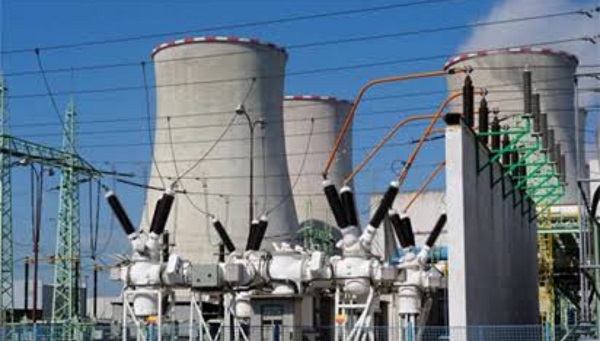Speaking at a panel session on the theme “Green Economy, Sustainable Growth, and Infrastructure Transformations” at The Oriental News 2024 Summit, held in Lagos, the Executive Director of PowerUp Nigeria, Adetayo Adegbemle, has challenged the Rural Electrification Agency (REA) and other relevant Agencies of Government to share industry data with the private sector to optimize the utilization of green funding.
He emphasised that this is essential for Nigeria to achieve its vision of 30 Gigawatts of energy by 2030 and to advance towards Sustainable Development Goal 7 on affordable and clean energy.
According to him, despite trillions of Naira spent in the renewable energy sector over the years, consolidating data from various government agencies remains difficult, hindering the effectiveness of significant investments in Nigeria’s green economy.
He noted that “transparency and data sharing among government agencies remain challenges, hindering the collaboration and participation of the serious private sector players within the renewable energy space.
“To integrate 30% of renewable energy sources into the national grid, government agencies must be open and transparent with their data.
Reflecting on the journey of renewable energy advocacy, Adegbemle said:
“Renewable energy has come a long way. Back in 2015, solar energy was considered a fluke energy product.
“It has taken extensive advocacy, funding, and engagement to convince people of the benefits of renewable energy, particularly solar.
“However, the challenge remains that renewable energy data is often siloed, limiting Nigeria’s ability to consolidate gains from the substantial funding in the green economy.
“Despite the huge funds, matching the results with financials has been difficult,” the ED Power Up said.
He also pointed out specific issues with the REA’s initiatives:
“The REA has done remarkable things, but projects like the Energizing Education Programme (EEP) and Energizing Economies Initiative (EEI) have seen mixed results.
“While significant efforts have been made with Phase 1 and the ongoing Phase 2 involving selected universities and teaching hospitals, the Energizing Economies Initiative (EEI) implemented in Ariaria Market in Aba, Abia State, Sura Market in Lagos, and Sabon Gari Market and Katin Kari Market in Fagge, Kano State, has not yielded results commensurate with the funds invested,” he said.
Adegbemle stated that reviewing lessons learned from these projects is crucial for improving future efforts.
He observed that the REA has made limited progress in establishing solar energy-powered agro-processing zones in Nigeria, with only a few solar-powered water pumps provided to farmers in rural communities to improve irrigation.
Speaking on the lip service the Nigerian government and stakeholders have paid to identify hydropower generation, which has significantly contributed to the country’s renewable energy mix, Adegbemle highlighted the importance of private sector engagement, particularly with Mainstream Energy Solutions Limited (MESL), which owns and operates the Kainji and Jebba Hydro Power Plants.
According to him, major drivers of renewable energy in Nigeria, like Mainstream Energy, are often overlooked in discussions within the green energy space. Adegbemle insisted that effective policy requires full engagement with the private sector to critique and improve policymaker performance.
He said, “We must expand the conversation, base progress on data, and make it accessible for decision-making purposes. Consolidating data from different government agencies is essential to achieve our sustainable development goals in the power sector.”
Emphasizing the broader scope of the green economy in Nigeria, Adegbemle mentioned that “For the green economy, there are five major pillars: renewable energy, green building, green transportation, water management, and waste.
“Often, the focus is limited to renewable energy, but we should consider integrating all these pillars into the conversation.”
Mrs. Funke Adebayo Arowojobe, Director of Public Affairs and Consumer Protection at the Nigerian Meteorological Agency (NIMET), in her comment during the panel session, stressed the necessity of a green economy for the future of Nigeria.
According to her, “Going green is necessary, but there is no adequate infrastructure to achieve this at the moment.
She said, “The government and private sector must make conscious efforts to finance green infrastructure. This is a topic of discussion in West African countries.
“For instance, in the aviation sector where we belong, there is an attempt to convert planes to use gases instead of aviation kerosene fuel.
“Kenya has taken the lead, successfully flying a four-hour flight with green gas.
“It took Kenya Airways a year and six months, in collaboration with the Netherlands, to achieve this.”
Arowojobe highlighted the financial challenges and benefits:
“Converting airlines to gas fuel engines involves billions of Naira, aiming to provide cheaper services for commercial flight passengers” she hinted.
NIMET’s Director of Public Affairs and Consumer Protection emphasized that while converting planes from aviation kerosene to natural gas involves high initial costs, the long-term benefits are significant.
She called on the banking sector and multilateral financial organizations in Africa and globally to engage in the conversation and actively provide innovative financial instruments to support the transition to greener technologies.


Comment here